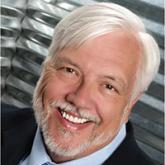Thank you for your thoughtful commentary on the pertinent topic of full practice authority for PAs (2017;27[2]:12-14). In more than 30 years as a PA, I have rarely regretted my career choice. In 1982, when I was planning my career path, I chose to become a PA instead of an NP because I didn’t want to further my nursing training (I was already an LPN) to advance my practice, and my impression was that PAs and NPs were equivalent in the workforce. This perception held true until the past few years; I have lost job opportunities specifically because the employer didn’t want to deal with the administrative details of PA supervisory requirements here in Colorado. I find this frustrating, as well as perplexing.
Although I’ve become more comfortable with autonomy throughout my years of practice, I’ve always reserved the right to consult when necessary and appropriate, based on my own judgment and comfort level. I certainly wouldn’t mind more relaxed supervision, but I wouldn’t want to be cut entirely loose, either. On the other hand, I resent being ineligible for job opportunities simply for administrative reasons. While this is surely misguided on the part of the employers, it is a reality that practitioners encounter.
I learned recently—to my astonishment—that my NP colleagues pay about a tenth of what I do for malpractice insurance. Apparently the underwriters (and/or the plaintiffs) haven’t caught up with the nuances of responsibility and autonomy! From my perspective, PAs and NPs have more in common in the practice setting than NPs and RNs do. The fact that NPs are governed by nursing boards and insured as nurses is more an antiquated accident than a reflection of function in the workforce.
Ideally, there should be a governing body dedicated to the entire spectrum of nonphysician providers who are qualified to diagnose, treat, and prescribe. Since that is not likely to happen, it is our responsibility as PAs to match NPs in the marketplace while maintaining our integrity as providers.
Elizabeth Upper, PA-C
Denver, Colorado
